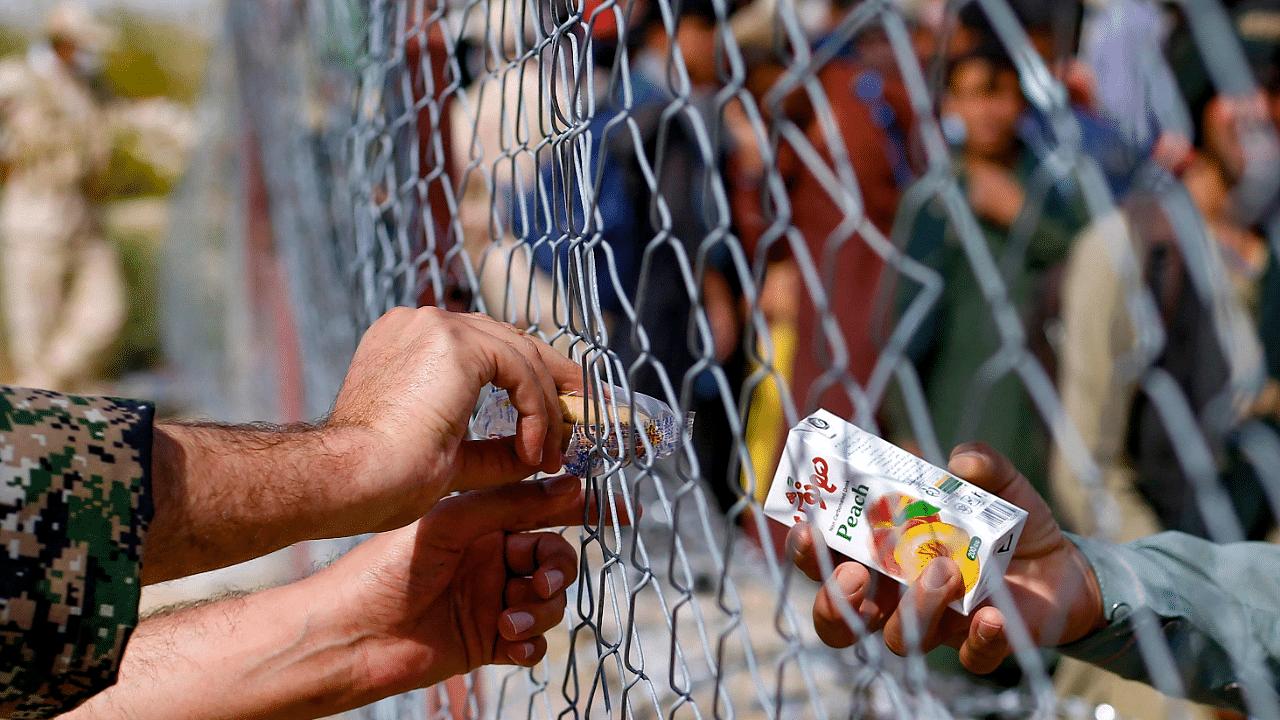
The fall of Kabul earlier this month has brought back to the forefront the refugee crisis as Afghans flee prosecution at the hands of the Taliban. Countries around the world have promised to rehabilitate Afghans in the thousands, while weighing risks of the rise of Taliban to geopolitics.
Here's a look at the top 15 countries that took in the most number of refugees from Afghanistan in 2020.
Pakistan tops the list in 2020
Data suggests that Afghans fled the country in four waves: during the Soviet-Afghan war (1979-1989), the Afghan Civil War (1992-96), during the Taliban rule (1996-2001) and after the US invaded Afghanistan (2001-2021).
According to data by the United Nations Human Rights Council (UNHRC) for 2020, Pakistan housed the most refugees from Afghanistan, nearly 14.3 lakh, followed by Iran which took in 7.8 lakh refugees, Germany which took 1.4 lakh Afghans.
India stands at 12th place, having taken only 8,275 Afghan refugees in 2020 behind Australia and United Kingdom. United States took in 1,592 refugees in the same year.
| Country | Refugees under UNHRC's mandate | Asylum seekers |
|---|---|---|
| Pakistan | 1,438,432 | 9,668 |
| Iran (Islamic Rep. of) | 780,000 | 0 |
| Germany | 147,994 | 33,103 |
| Austria | 40,096 | 6,473 |
| France | 31,546 | 13,560 |
| Sweden | 29,927 | 1,358 |
| Greece | 21,456 | 19,706 |
| Switzerland | 14,523 | 844 |
| Italy | 12,096 | 1,339 |
| Australia | 10,659 | 1,761 |
| United Kingdom of Great Britain and Northern Ireland | 9,351 | 3,227 |
| India | 8,275 | 6,857 |
| Indonesia | 5,863 | 1,739 |
| Tajikistan | 5,573 | 408 |
| Netherlands | 5,212 | 497 |
*Persons recognised by states under the eligibility criteria in Article 1 of the 1951 Convention are termed refugees, while in countries with individualised procedures, an asylum-seeker is someone whose claim has not yet been finally decided on by the country in which the claim is submitted.
How countries plan to deal with refugees
Pakistan has historically hosted the most refugees since the Soviet Afghan war. The country is expecting another 70,000 refugees this year and the government is unprepared to handle this crisis.
"We are already hosting three million Afghan refugees. Our economy is not stable enough to take more, and at the same time, the Covid-19 situation doesn't allow us to open borders," I&B Minister of Pakistan, Fawad Chaudhry, told TIME.
The country is fencing its long 1,622-mile land border with Afghanistan to keep militants from entering, which is a tough task, given the split population of the Pashtunu community between the two countries.
Prime Minister Imran Khan also said the country is unprepared for an influx, but the government is thinking up a comprehensive strategy to isolate refugees near the border.
Iran, which shares a 900-km border with the war-torn nation, plans to house refugees in three provinces, where it has set up tents. But it will emphasise repatriating once conditions improve in the country.
Turkey is working to stop the influx of refugees and has said it will help Pakistan stabilise the situation in Afghanistan.
The United Kingdom has said it will welcome nearly 20,000 refugees over the coming years as part of a new resettlement program, prioritising women, girls and religious minorities. Canada has promised a similar figure, with special mention of Afghans part of the LGBTQ community.
Australia, Austria and Switzerland have said they have no plans to allow an influx of Afghan refugees. The US is focussing on its evacuation efforts as of now.